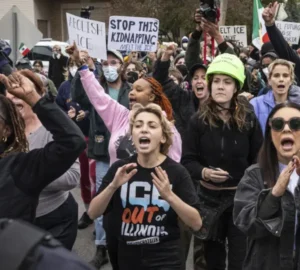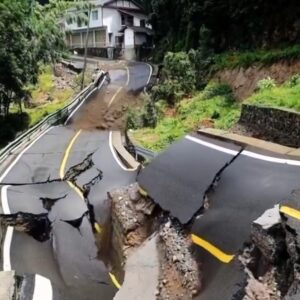The indictment of congressional candidate Kat Abughazaleh has quickly evolved from a regional legal matter into a nationally discussed event, capturing the attention of activists, lawmakers, immigration advocates, and constitutional scholars across the country.
The charges—filed by a federal grand jury in Illinois—stem from demonstrations outside a U.S. Immigration and Customs Enforcement (ICE) detention facility in Broadview, Illinois.
The case sits at the intersection of multiple ongoing debates: the limits of civil disobedience, the role of federal agencies in immigration enforcement, the rights of protesters, and the responsibilities of political candidates who participate in activist movements.
While protests outside ICE facilities are not new, the decision to pursue federal charges against a congressional candidate has intensified scrutiny and raised complex questions that continue to ripple through national media.
A Closer Look at the Charges Filed Against Abughazaleh
According to the federal indictment filed on October 23, prosecutors allege that Abughazaleh engaged in actions that “physically hindered and impeded” a federal officer during the performance of official duties. The document names two core charges:
1. Conspiracy to impede a federal officer
This count alleges that Abughazaleh and five others engaged in coordinated actions intended to obstruct a federal agent working at the Broadview ICE facility. Prosecutors claim the group planned, organized, and executed efforts to interfere with the movement of official vehicles used to transport detainees.
2. Forcibly interfering with a federal employee
The second charge asserts that Abughazaleh stood directly in the path of a moving federal vehicle, forcing the driver to reduce speed dramatically. Federal agents maintain that the action created a dangerous situation, both for the protesters and for the officer attempting to complete a routine transfer of detainees.
The indictment points to video evidence, officer testimony, and additional surveillance footage from the surrounding area.

What Prosecutors Say Happened During the Protest
According to the Justice Department, the protest escalated beyond peaceful demonstration during several key moments:
Protesters allegedly surrounded ICE vehicles, forming human chains and chanting slogans.
Some individuals reportedly struck federal vehicles, causing scratches and minor damage.
Agents claim they were “significantly impeded” while trying to perform lawful duties inside the facility.
At one point, an officer inside a government SUV had to creep forward at “an extremely slow speed” to avoid injuring demonstrators.
The indictment suggests that these actions were “planned and encouraged” by multiple individuals, including Abughazaleh.
Federal officials characterized the demonstrations as “highly disruptive,” though they acknowledged that many of the protests remained peaceful.
The Broader Context: Why the Broadview ICE Facility Became a Flashpoint
The Broadview detention facility has long been a central gathering point for immigration advocates in Illinois.
Community members frequently gather outside the facility during deportation operations, vigils, and organized demonstrations, citing concerns about:
treatment of detainees
deportation practices
family separations
transparency regarding ICE procedures
the emotional toll on local immigrant communities
For years, Broadview has been a symbolic site for immigrant families who fear losing loved ones. Weekend vigils often attract faith groups, nonprofit leaders, and human rights organizations.
But in recent months, the activity intensified significantly. Protests grew larger, more frequent, and more confrontational as national debate over immigration enforcement heightened. The demonstrations expanded beyond traditional advocacy groups to include local politicians, student coalitions, social media activists, and independent journalists.
Abughazaleh’s Involvement and Public Persona
Kat Abughazaleh is known both as a political newcomer and a progressive activist deeply involved in digital media and public policy debates. Before launching her congressional campaign, she built a large online following as a commentator focusing on:
immigration issues
economic justice
policing
civil liberties
government accountability
Her supporters describe her as:
outspoken
energetic
deeply committed to immigrant communities
unafraid to challenge federal authority
Her critics, however, argue that she engages in confrontational activism that sometimes crosses the line into unlawful conduct.
Her appearance at the Broadview protests came as no surprise to her followers. She had openly documented her presence there in videos and posts, often uplifting the voices of families impacted by ICE procedures.
Her Public Response: “This Is a Political Prosecution”
Following the indictment, Abughazaleh issued a strong statement calling the charges unjust and politically motivated.
She argued that:
the protests were peaceful
demonstrators were exercising First Amendment rights
federal officers escalated tensions
the indictment is meant to intimidate activists
her political candidacy is influencing federal scrutiny
“This is a political prosecution,” her statement read. “This is a blatant attempt to discourage dissent and to criminalize activism. I refuse to be silenced.”
Her campaign has continued without interruption, and her supporters have rallied around her, framing the indictment as an unfair attempt to tarnish her candidacy.




